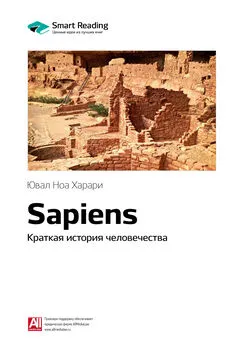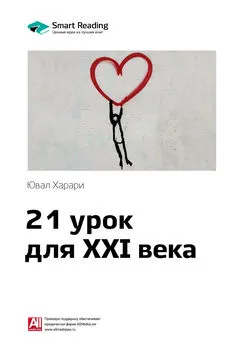Юваль Ной Харари - 21 урок для XXI века [Версия с комментированными отличиями перевода]
- Название:21 урок для XXI века [Версия с комментированными отличиями перевода]
- Автор:
- Жанр:
- Издательство:неизвестно
- Год:2019
- ISBN:нет данных
- Рейтинг:
- Избранное:Добавить в избранное
-
Отзывы:
-
Ваша оценка:
Юваль Ной Харари - 21 урок для XXI века [Версия с комментированными отличиями перевода] краткое содержание
Издательство «Синдбад» внесло существенные изменения в содержание перевода, в основном, в тех местах, где упомянуты Россия, Украина и Путин. Хотя это было сделано с разрешения автора, сравнение версий представляется интересным как для прояснения позиции автора, так и для ознакомления с политикой некоторых современных российских издательств.
Данная версии файла дополнена комментариями с исходным текстом найденных отличий (возможно, не всех). Также, в двух местах были добавлены варианты перевода от
. Для удобства поиска, а также большего соответствия теме книги, добавленные комментарии отмечены словом «post-truth».
«Моя главная задача — сделать так, чтобы содержащиеся в этой книге идеи об угрозе диктатуры, экстремизма и нетерпимости достигли широкой и разнообразной аудитории. Это касается в том числе аудитории, которая живет в недемократических режимах. Некоторые примеры в книге могут оттолкнуть этих читателей или вызвать цензуру. В связи с этим я иногда разрешаю менять некоторые острые примеры, но никогда не меняю ключевые тезисы в книге»
21 урок для XXI века [Версия с комментированными отличиями перевода] - читать онлайн бесплатно ознакомительный отрывок
Интервал:
Закладка:
208
См., например: Robert O. Paxton, The Anatomy of Fascism (New York: Vintage Books, 2005).
209
Richard Griffiths, Fascism (London, New York: Continuum, 2005), 33.
210
Christian Goeschel, Suicide in the Third Reich (Oxford: Oxford University Press, 2009).
211
‘Paris attacks: What happened on the night’, BBC, 9 December 2015, http://www.bbc.com/news/world-europe-34818994, ссылка актуальна на 13 August 2017; Anna Cara, ‘ISIS expresses fury over French airstrikes in Syria; France says they will continue’, CTV News, 14 November 2015, http://www.ctvnews.ca/world/isis-expresses-fury-over-french-airstrikes-in-syria-france-says-they-will-continue-1.2658642, ссылка актуальна на 13 August 2017.
212
Jean de Joinville, The Life of Saint Louis in M. R. B. Shaw (ed.), Chronicles of the Crusades (London: Penguin, 1963), 243; Jean de Joinville, Vie de saint Louis, ed. Jacques Monfrin (Paris, 1995), ch. 319, p. 156.
213
Ray Williams, ‘How Facebook Can Amplify Low Self-Esteem/Narcissism/ Anxiety’, Psychology Today, 20 May 2014, https://www.psychologytoday.com/blog/wired-success/201405/how-facebook-can-amplify-low-self-esteemnarcissismanxiety, ссылка актуальна на 17 August 2017.
214
Mahasatipatthana Sutta, ch. 2, section 1, ed. Vipassana Research Institute (Igatpuri: Vipassana Research Institute, 2006), 12–13.
215
Там же, 5.
216
G. E. Harvey, History of Burma: From the Earliest Times to 10 March 1824 (London: Frank Cass & Co. Ltd, 1925), 252–260.
217
Brian Daizen Victoria, Zen at War (Lanham: Rowman & Littlefield, 2006); Buruma, Inventing Japan, цитируемая работа; Stephen S. Large, ‘Nationalist Extremism in Early Showa Japan: Inoue Nissho and the “Blood-Pledge Corps Incident”, 1932’, Modern Asian Studies 35:3 (2001), 533–564; W. L. King, Zen and the Way of the Sword: Arming the Samurai Psyche (New York: Oxford University Press, 1993); Danny Orbach, ‘A Japanese prophet: eschatology and epistemology in the thought of Kita Ikki’, Japan Forum 23:3 (2011), 339–361.
218
‘Facebook removes Myanmar monk’s page for “inflammatory posts” about Muslims’, Scroll.in, 27 February 2018, https://amp.scroll.in/article/870245/facebook-removes-myanmar-monks-page-for-inflammatory-posts-about-muslims, ссылка актуальна на 4 March 2018; Marella Oppenheim, “It only takes one terrorist”: The Buddhist monk who reviles Myanmar’s Muslims’, Guardian, 12 May 2017, https://www.theguardian.com/global-development/2017/may/12/only-takes-one-terrorist-buddhist-monk-reviles-myanmar-muslims-rohingya-refugees-ashin-wirathu, ссылка актуальна на 4 March 2018.
219
Jerzy Lukowski and Hubert Zawadzki, A Concise History of Poland (Cambridge: Cambridge University Press, 2001), 163.
220
Daniel Goleman and Richard J. Davidson, Altered Traits: Science Reveals How Meditation Changes Your Mind, Brain and Body (New York: Avery, 2017).
Комментарии
post-truth 1
В оригинале:
Turkey and Russia
post-truth 2
В оригинале вместо этого абзаца два про Россию:
Resurgent Russia sees itself as a far more forceful rival of the global liberal order, but though it has reconstituted its military might, it is ideologically bankrupt. Vladimir Putin is certainly popular both in Russia and among various right-wing movements across the world, yet he has no global world view that might attract unemployed Spaniards, disgruntled Brazilians or starry-eyed students in Cambridge.
Russia does offer an alternative model to liberal democracy, but this model is not a coherent political ideology. Rather, it is a political practice in which a number of oligarchs monopolise most of a country’s wealth and power, and then use their control of the media to hide their activities and cement their rule. Democracy is based on Abraham Lincoln’s principle that ‘you can fool all the people some of the time, and some of the people all the time, but you cannot fool all the people all the time’. If a government is corrupt and fails to improve people’s lives, enough citizens will eventually realise this and replace the government. But government control of the media undermines Lincoln’s logic, because it prevents citizens from realising the truth. Through its monopoly over the media, the ruling oligarchy can repeatedly blame all its failures on others, and divert attention to external threats – either real or imaginary.
post-truth 3
Далее в переводе от «Синдбад» пропущено:
Thus Russia pretends to be a democracy, and its leadership proclaims allegiance to the values of Russian nationalism and Orthodox Christianity rather than to oligarchy. Right-wing extremists in France and Britain may well rely on Russian help and express admiration for Putin, but even their voters would not like to live in a country that actually copies the Russian model – a country with endemic corruption, malfunctioning services, no rule of law, and staggering inequality. According to some measures, Russia is one of the most unequal countries in the world, with 87 per cent of wealth concentrated in the hands of the richest 10 per cent of people. How many working-class supporters of the Front National want to copy this wealth-distribution pattern in France?
Humans vote with their feet. In my travels around the world I have met numerous people in many countries who wish to emigrate to the USA, to Germany, to Canada or to Australia. I have met a few who want to move to China or Japan. But I am yet to meet a single person who dreams of emigrating to Russia.
post-truth 4
Оригинал:
In Russia, Putin’s official vision is not to build a corrupt oligarchy, but rather to resurrect the old tsarist empire.
post-truth 5
В переводе от «Синдбад» пропущено предложение:
As of March 2018, I would prefer to give my data to Mark Zuckerberg than to Vladimir Putin (though the Cambridge Analytica scandal revealed that perhaps there isn’t much of a choice here, as any data entrusted to Zuckerberg may well find its way to Putin).
post-truth 6
В переводе от «Синдбад» текст сокращен и переписан.
Оригинал:
So far the only successful invasion mounted by a major power in the twenty-first century has been the Russian conquest of Crimea. In February 2014 Russian forces invaded neighbouring Ukraine and occupied the Crimean peninsula, which was subsequently annexed to Russia. With hardly any fighting, Russia gained strategically vital territory, struck fear into its neighbours, and re-established itself as a world power. However, the conquest succeeded thanks to an extraordinary set of circumstances. Neither the Ukrainian army nor the local population showed much resistance to the Russians, while other powers refrained from directly intervening in the crisis. These circumstances will be hard to reproduce elsewhere around the world. If the precondition for a successful war is the absence of enemies willing to resist the aggressor, it seriously limits the available opportunities.
Indeed, when Russia sought to reproduce its Crimean success in other parts of Ukraine, it encountered substantially stiffer opposition, and the war in eastern Ukraine bogged down into unproductive stalemate. Even worse (from Moscow’s perspective), the war has stoked anti-Russian feelings in Ukraine and turned that country from an ally into a sworn enemy. Just as success in the First Gulf War tempted the USA to overreach itself in Iraq, success in Crimea may have tempted Russia to overreach itself in Ukraine.
Перевод The Insider:
Пока единственным успешным вторжением, осуществленным ведущей державой в 21 веке, стало российское завоевание Крыма. В феврале 2014 года российские войска вторглись в соседнюю Украину и оккупировали Крымский полуостров, который был впоследствии аннексирован Россией. Почти без какой-либо борьбы Россия заняла стратегически важную территорию, посеяла страх в соседях и восстановила себя в качестве мировой державы. Однако завоевание закончилось успешно благодаря экстраординарному стечению обстоятельств. Ни украинская армия, ни местное население не оказали большого сопротивления россиянам, тогда как остальные державы воздержались от прямого вмешательства в конфликт. Эти обстоятельства будет сложно воспроизвести где-нибудь в мире. Если предусловие для священной войны — это отсутствие врагов, желающих сопротивляться агрессору, это серьезно ограничивает доступные возможности.
В самом деле, когда Россия пыталась повторить крымский успех в других частях Украины, она наталкивалась на значительно более жесткое сопротивление, и война в восточной Украине зашла в тупик. Даже хуже (с российской точки зрения), война разожгла антироссийские настроения в Украине и превратила эту страну из союзника в заклятого врага.
post-truth 7
В переводе от «Синдбад» абзац значительно изменен.
Оригинал:
Taken together, Russia’s wars in the Caucasus and Ukraine in the early twenty-first century can hardly be described as very successful. Though they have boosted Russia’s prestige as a great power, they have also increased distrust and animosity towards Russia, and in economic terms they have been a losing enterprise. Tourist resorts in Crimea and decrepit Soviet-era factories in Luhansk and Donetsk hardly balance the price of financing the war, and they certainly do not offset the costs of capital flight and international sanctions. To realise the limitations of the Russian policy, one just needs to compare the immense economic progress of peaceful China in the last twenty years to the economic stagnation of ‘victorious’ Russia during the same period.
post-truth 8
В переводе от «Синдбад» текст сокращен и частично изменен.
Оригинал:
The brave talk from Moscow notwithstanding, the Russian elite itself is probably well aware of the real costs and benefits of its military adventures, which is why it has so far been very careful not to escalate them. Russia has been following the playground-bully principle: ‘pick on the weakest kid, and don’t beat him up too much, lest the teacher intervenes’. If Putin had conducted his wars in the spirit of Stalin, Peter the Great or Genghis Khan, then Russian tanks would have long ago made a dash for Tbilisi and Kyiv, if not for Warsaw and Berlin. But Putin is neither Genghis nor Stalin. He seems to know better than anyone else that military power cannot go far in the twenty-first century, and that waging a successful war means waging a limited war. Even in Syria, despite the ruthlessness of Russian aerial bombardments, Putin has been careful to minimise the Russian footprint, to let others do all the serious fighting, and to prevent the war from spilling over into neighbouring countries.
Читать дальшеИнтервал:
Закладка:
![Обложка книги Юваль Ной Харари - 21 урок для XXI века [Версия с комментированными отличиями перевода]](/books/1080711/yuval-noj-harari-21-urok-dlya-xxi-veka-versiya-s-ko.webp)

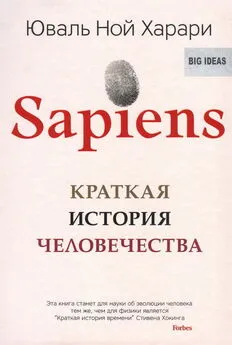
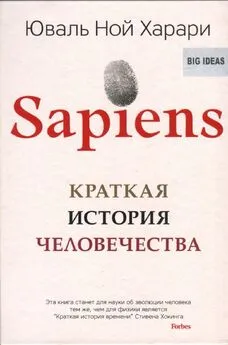
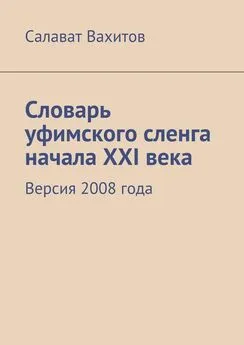
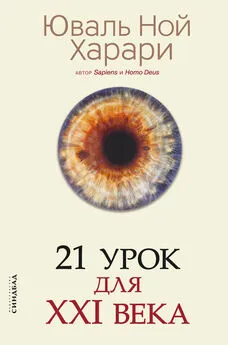
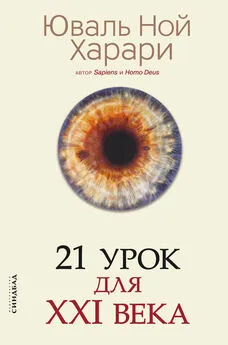
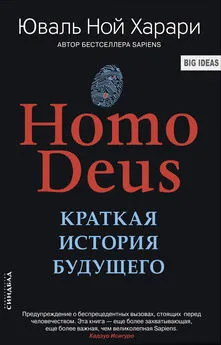
![Юваль Ной Харари - Sapiens. Краткая история человечества [litres]](/books/1102059/yuval-noj-harari-sapiens-kratkaya-istoriya-cheloveche.webp)
